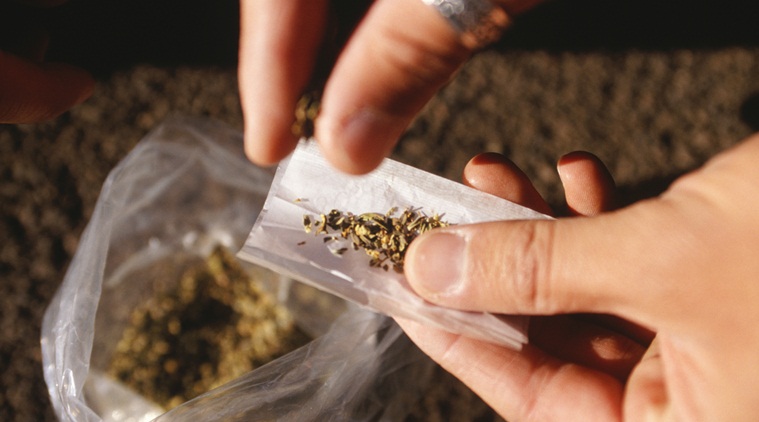PITTSBURGH >> The nascent Pennsylvania medical marijuana industry is creating new work for lawyers statewide. Three attorneys hoping to bring their expertise to this brave new world recently founded Pittsburgh-based Cannabis Legal Solutions.
“A lot of people appreciate if their attorneys have knowledge of the cannabis industry,” said Patrick Nightingale, who with Andrew Gross and Alan Patterson, formed Cannabis Legal Solutions. “Basically, with this new and emerging industry, clients can be well served by attorneys with some familiarity with the cannabis industry, how products are prepared and sold, an overall familiarity, the difference between indica and sativa. There’s not a lot of law firms that have experience with it. It’s been a controlled substance.”
As clients are moving into spaces and opening businesses, there can be issues with local zoning, regulatory compliance and “push and pull” with state and federal law, he said.
Nightingale, whose main practice has been criminal defense, has been involved in the cannabis industry locally and nationally since 2008. He’s been an advocate for decimalization of marijuana and executive director of Pittsburgh NORML, a regional chapter of the National Organization for the Reform of Marijuana Laws.
“I have always believed that cannabis prohibition was wrongheaded and nonsensical and based on lies and racism,” said Nightingale. “African American men have a five times higher risk of being arrested for small amounts of marijuana” than white men,” he said. A 2005 American Civil Liberties Union report found higher arrest rates for minorities across the country for marijuana possession and in Pennsylvania, it was four to one, he said. Also, minorities are more likely to be jailed for not being able to post bail, said Nightingale, a former assistant district attorney.
Nightingale predicted that five years from now the state Legislature will decriminalize marijuana, saying that Philadelphia, Pittsburgh, Harrisburg, York and State College already have decriminalized possession of small amounts of the drug.
“We can’t have this hodgepodge of decriminalization ordinances,” he said.
But that may hinge on how well the medical marijuana industry does in keeping within the law regarding transportation, distribution and security, preventing the medical marijuana from being hijacked by criminals. Lawmakers will likely want to see if the “system can function without illegal diversion,” said Nightingale.
“If we see it goes well, it’s going to give the green light to recreational reform,” said Nightingale. Two decriminalization bills for small amounts of marijuana are already going through the state Legislature, he said.
“The fact that these bills have some bipartisan support and are moving through Harrisburg is very exciting,” said Nightingale.
Also, the state could garner some $500,000 a year in new taxes from legalized pot, as well, citing the Colorado example, he said. And the Rand Corporation, a think tank, posits that Pennsylvania might save $200 million to $300 million annually in law enforcement, court and prison costs. This could prove tempting considering the $2 billion hole in this year’s state budget, he said.
This also may engender a need for a change in DUI laws.
“If someone is a regular, daily user they will almost always be over that (DUI) threshold,” he said. Meanwhile, the National Institute of Health is soliciting bids for devices to determine the impairment of drivers, rather than their blood levels. Patients also need to understand the risk of using medical marijuana, such as increased drowsiness, he said.
One problem with the new Pennsylvania law is that the strict regulations will impose higher costs on patients who may not be able to afford $200 or $300 out-of-pocket for medical marijuana each month, Nightingale said. Health insurance companies do not yet cover medical marijuana.
“We have a very highly regulated bill that imposes a lot of costs,” he said. “Restrictions on growers and dispensaries, those costs are going to be passed down to patients.” If the cost and quality of Pennsylvania products are not in line with other states that have legalized medical marijuana, there could be problems. One rule driving up the price is the need for a doctor or pharmacist to be present at a medical marijuana dispensary, he said. High costs might lead to the state Department of Health to cap prices to protect consumers.
The three legal partners are also actively involved in the Pennsylvania Medical Cannabis Society (PAMCS) and Pittsburgh NORML as well as the National Cannabis Industry Association (NCIA) and Law Enforcement Against Prohibition (LEAP).
credit:montgomerynews.com









